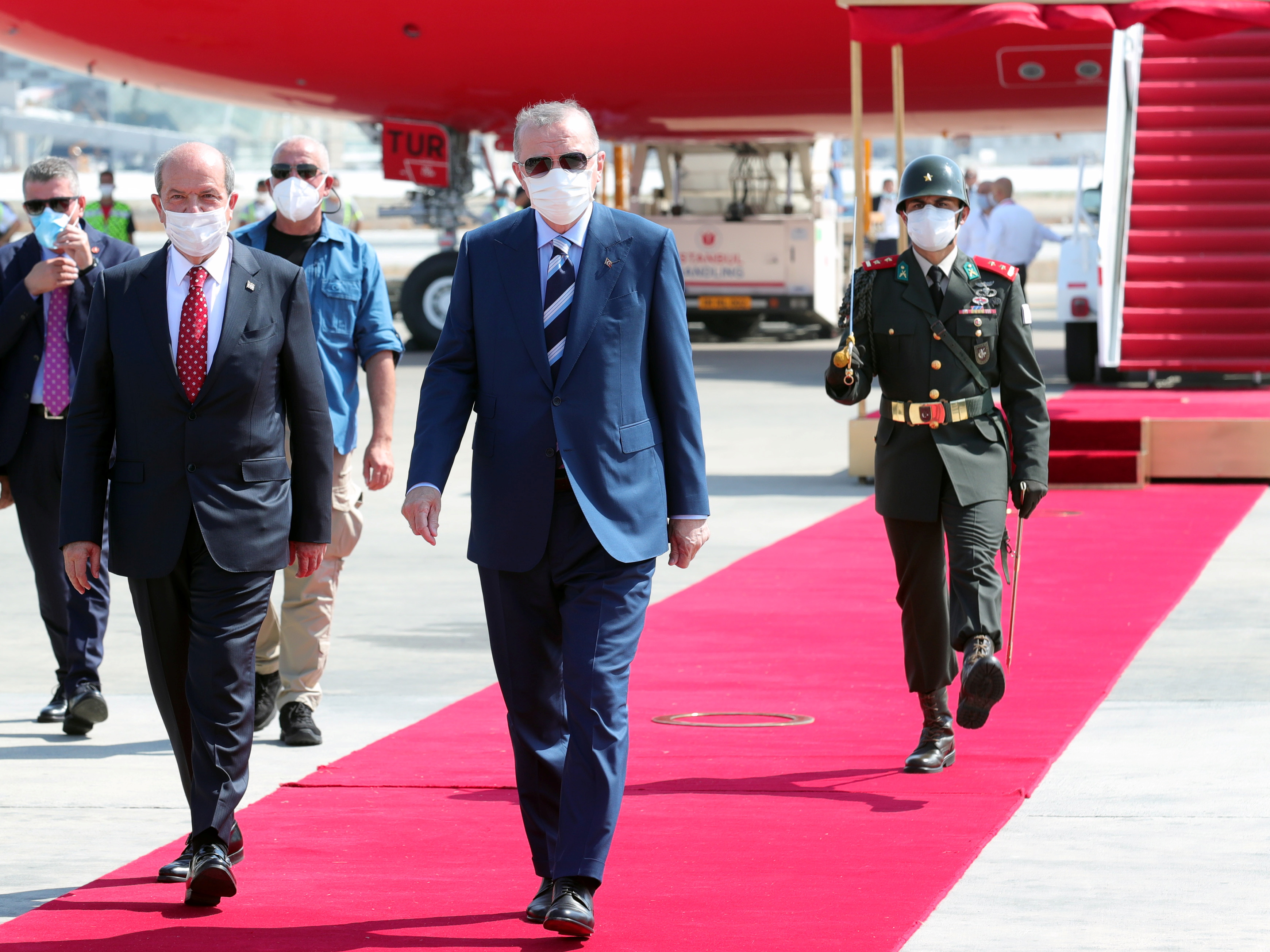After protests to the UK, which drafted the UN Security Council Presidential Statement on Varosha, the Cyprus government succeeded in having a reference to the “Turkish and Turkish Cypriot leaders” included. The first and the second draft of the statement, while expressing concern about the July 20 announcement “on the further reopening of a part of the fenced-off area of Varosha,” avoided mentioning the Turkish and Turkish Cypriot leaders, angering Nicosia, and forcing Ireland, India and China to break the silence procedure.
US Secretary of State Antony Blinken also advocated a strong reaction by the Security Council and described the Turkish action, as “provocative, unacceptable.” On Friday the government spokesman said President Anastasiades had asked the President of the European Council Charles Michel for a strong reaction from the EU. Michel said there would be a further reaction, after the UN Security Council decisions were announced, even though Nicosia’s wish for an extraordinary meeting of the European Council on the matter seems unlikely to happen.
These statements are welcome and having the international community almost unanimously censure Turkey for its unlawful action offers a certain moral satisfaction to Greek Cypriots, but what is the practical import? Can verbal condemnations stop the opening, in stages, of the fenced-off area of Varosha? There are two strong-worded UN Security Council resolutions on Varosha – 550 (1984) and 789 (1992) – the only benefit of which was stopping Turkey from settling the town until now. But there has never been the slightest hint of Turkey complying with the resolutions call for transferring Varosha to UN administration.
The process of the opening up may be slowed down as a consequence of the international reaction but the possibility of President Erdogan backing down is, at best, minimal. Turkey would argue that it has invited the Greek Cypriot owners of the properties in the area opened for settlement to return, partly in line with the UN resolutions, and carry on. The UN has no power to stop Turkey, as we know, while the EU has shown reluctance to confront Turkey over Cyprus, much less so now that Greece and Turkey are engaged in a level of dialogue. The concern in Brussels was that Greece was being dragged into the Cyprus-Turkey dispute over gas, but this is no longer the case.
The question is what will happen when the condemnations are over? What would we do with the UNSC presidential statement that names the Turkish and Turkish Cypriots leaders as the perpetrators of the violation of UN resolutions? It will not stop Turkey’s unlawful action on Varosha. Cyprus could try to place obstacles in the Turkey-EU positive agenda, but how successful would such a policy be? Anastasiades might be able to block a decision or two but for how long? All this would achieve would be to turn most of our EU partners, who want good relations with Ankara, against Cyprus, which in the long run will cause more harm to Cyprus than to Turkey.
In the end, if past experience is anything to go by, the only thing we can realistically expect as a consequence of the Varosha development is that it may give rise to another attempt by the UN, probably backed by the US, to bring the two sides to the negotiating table. Whether it will succeed is another matter given that Turkey has moved on from the bizonal bicommunal federation, but the fact remains that the international community, including the EU, believes the only way to resolve the disputes over oil and gas and now Varosha is a settlement. That Turkey is now looking at a different type of settlement, based on sovereign equality, is of no concern to anyone except the Greek Cypriots.
The main responsibility for what is happening belongs to the Anastasiades government for the gross miscalculation of unjustifiably overestimating its ability to influence events through trilateral alliances that would supposedly give it a regional edge and render a settlement superfluous. Now, even Greece, which was dragged into these alliance games, has side-lined Cyprus, talking directly to Israel and Egypt about energy cooperation and trying to resolve its bilateral disputes with Turkey with little, if any, consideration for the Cyprus problem. Anastasiades’ assumption that the status quo could be maintained without problems until the end of his term has also proved mistaken. The evolution of the status quo into the two-state solution, that by all accounts is his preferred option, would not have happened without the opening of Varosha at some point in the process by the Turks. Was Anastasiades not aware of this?
In the last week, public attention was diverted to the wording of the Security Council statement, the duplicity of Britain, how the EU would react to Turkey’s actions, but these are side-issues. What we should ask is how we have managed for the fenced-off area of Varosha – the only part of occupied Cyprus that has not been settled – that was kept empty for 47 years with a view of being returned to the Greek Cypriots, will now not be?







Click here to change your cookie preferences